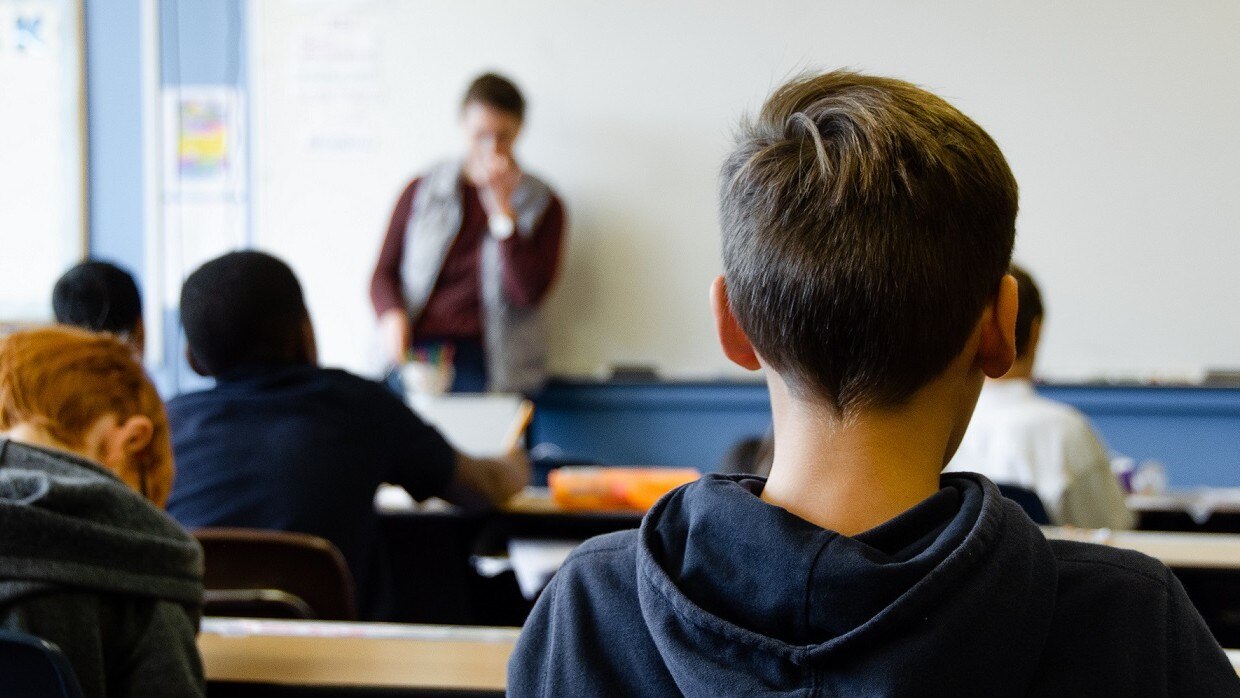South Australia's Education Review: Exploring New Paths for Non-Mainstream Schools

Boosting student engagement, improving school attendance and easing pressures on teachers are among topics that will be tackled by a review into non-mainstream education options in South Australia.
About 10,000 students participate each year in non-mainstream schooling programs across the state, including home schooling, online learning and at various dedicated sites.
According to the state government, such programs are designed for students who are not able to attend mainstream schools for reasons "including disability, behaviour, geographical isolation, mental health concerns, long-term illness, incarceration" and other complexities.
Sites include the Bowden Brompton Community School and the Open Access College, as well as the state's six Better Behaviour Centres which "provide a service for students who are showing signs of disengagement from school".
Education Minister Blair Boyer said students with complex needs represented a "growing cohort" across the country, and that the review would examine how options to support them — including in regional areas — could be bolstered.
"The numbers in these sites are growing a lot and not just here in South Australia, and I felt like we weren't looking closely enough at whether or not we had the capacity to cope for future growth," he told ABC Radio Adelaide.
"Are there parts of the state which aren't well serviced by some of these other options, and should we be growing that?"
The government said home schooling and Better Behaviour Centres had "high enrolments from children and young people with disabilities", and that the review would therefore consider what "barriers exist for young people with disabilities, to determine if this is a localised or system-wide issue".
"The review that I'm announcing today is looking at all the options that we have through the public education system in South Australia, trying to cater for students who aren't doing well in a mainstream setting," Mr Boyer said.
Adelaide mother Paula Clarke, whose autistic son Nash has left mainstream schooling, said "forcibly home-schooled children" and their families were not given enough support.
She said she felt her teenage son was excluded "from education" and, despite countless meetings with the school, the teenager ended up not returning for two years.
"I was getting phone calls at work to come and get him. That becomes a pattern," Ms Clarke said.
Nash Clarke, now 15, said his experience at school felt like being in a prison and that he left school grounds on occasion.
His mother said Nash's safety became an important aspect to consider when pulling him out of school.
"We feel it's a matter of life and death sometimes — can we keep our son at school safely and if we can't, then we have no alternative but to keep them at home," his mother said.
Ms Clarke, who runs an autism support group for Adelaide families, welcomed the review.
"I feel that sometimes everyone feels perhaps they should care more, these kids are better off at home unseen and unheard but families, they’ve had enough of being unheard," she said.
"Give the invisible families a chance, the forgotten children.
"I'm worried about the vulnerable families … a lot of the parents have disabilities themselves, how are we supporting them? How are we checking on their wellbeing? I think that's something that needs to be looked into as well."
'We ask our schools to do a lot'
Mr Boyer said the review into non-mainstream schooling was partly prompted by a need to address the array of factors that contribute to non-attendance.
The government has previously announced it is considering ways to crackdown on what Mr Boyer described as "chronic truancy" across the public education sector, including by the possible introduction of expiation notices for parents.
In May, Mr Boyer told the ABC that while he was not proposing "we start handing out expiation notices willy-nilly", the situation had reached the point where "we need to try some new, different and bold things".
He said another possible option was prosecuting parents who were actively preventing their children from attending school.
"One of the things that's a bit of a loophole that I've seen has been used by some of those parents is enrolling a child in a school interstate — they're not moving interstate but they are enrolling their child in a school that is interstate," Mr Boyer said in May.
"It's very hard for us to determine if that young person is attending that school in an online sense as they have committed to doing, and that's used as a way of getting around the current provisions."
The review of the non-mainstream sector would be conducted by the Education Department and completed by the end of the year, the government said.
Mr Boyer was today asked about school violence and said that while the most recent data showed it had dropped "for the first time in five years" in high schools, there had been an increase in violence "in primary schools, particularly around dysregulated young people".
He acknowledged that growing classroom challenges were having a deterrent effect on would-be teachers.
"There's a reason that people aren't choosing to do it," he said.
"We do ask our schools to do a lot more of this kind of work around managing behaviour than they ever used to, and that is a challenge for our staff and a challenge for education systems everywhere in the world.
"Staff do feel like they are dealing with a lot of things outside of the kind of the core teaching things that motivated them to be a teacher in the first place and we have to find a way of better supporting them.
"This review is part of us trying to do that."
Comments
Post a Comment